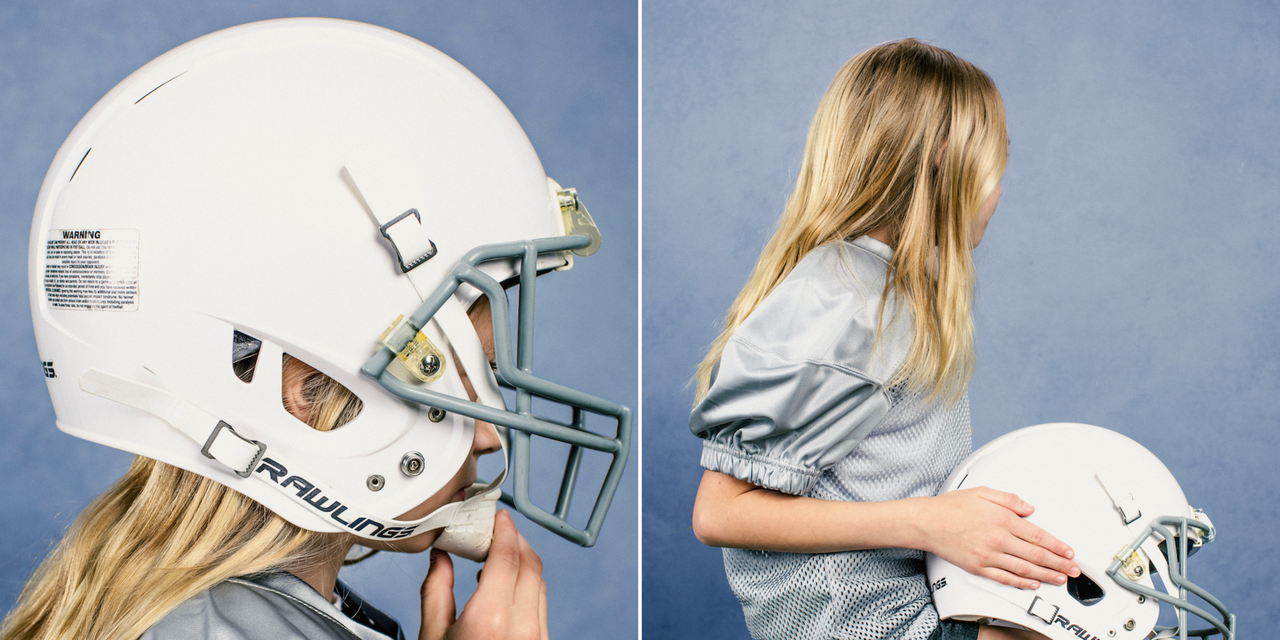You don’t have to scroll through the internet for long to understand that trans kids in America are under attack. Whether it’s lawmakers who are hell-bent on denying them life-affirming care or legislating which bathrooms trans people get to use, or far-right groups (both online and IRL) protesting drag shows and calling LGBTQ+ people “groomers,” we are in a moment of moral panic about transgender people.
One of the areas where the anti-trans rhetoric has taken on a particularly vitriolic tone is in school sports. In April, House Republicans introduced the first-ever federal legislation to ban trans female athletes from competing alongside cisgender girls and women. The story is similar throughout the country; 22 states have laws prohibiting trans students from competing on teams that align with their gender identity.
Despite rhetoric you hear from conservative lawmakers and media about some kind of social contagion making kids trans, the number of kids who identify as trans is actually relatively small. In 2019, the Centers for Disease Control and Prevention estimated that less than 2% of high school students were trans, and, of course, not all or even most of those kids play sports. To be clear, all athletes should be allowed to play on the teams that align with their gender identity, no matter what percentage of the population those athletes represent—but it’s important to be intellectually honest about the fact that a stunning amount of time and energy is going into stopping an extremely small number of kids from taking part in athletics.
There are some numbers related to trans kids that are alarmingly high. The Trevor Project surveyed 28,000 LGBTQ+ young people ages 13 to 24 in 2023 and found that one in three LGBTQ+ kids reported that their mental health was poor “most of the time or always” due to anti-LGBTQ+ legislation. Half of trans and nonbinary respondents said they’d seriously contemplated suicide in the last year.
Instead of further isolating, ostracizing, and marginalizing the relatively small number of trans student athletes, we should be advocating for all of them to be able to access the things they need and want to survive and thrive. For many kids, that’s the opportunity to play sports with their friends, something that provides enormous mental health benefits.
READ RELATED: In Trinidad, my grandmother shared with me her love of English roses
It’s easy to feel powerless and hopeless amid this barrage of anti-trans legislation and rhetoric, but there are people all over the country who are fighting back by making their communities’ sports teams safer and more welcoming for trans kids. SELF spoke with activists and community leaders in different parts of the country about what all of us can do to let trans kids know they’re loved—and to help them take the field alongside their friends.
Sarah Mikhail, a social worker and the executive director of Time Out Youth, a North Carolina advocacy group, describes the situation in the state as “scary.”
“I don’t think the government is going to save us,” Mikhail tells SELF. “So what kind of community can we build for youth so that they’re protected from a government that wasn’t designed for us?”
Look to the organizers already doing this work in your community.
Instead of trying to reinvent the wheel or start something from scratch, see if there are already people working on initiatives in your city or state. It’s not always easy to find them, because not every place has an LGBTQ+ community center or a place where queer and trans people can gather safely. Sometimes, though, finding the right organizations and resources can be as simple as doing a Google search. Beyond that, social media can really come in handy—if you poke around on Facebook, Instagram, or even TikTok, you can likely find the people and organizations who are already doing the work and follow their lead. Start by typing “trans” plus your state or other key search words into the social media search bar to start looking for organizations that might not turn up as readily via Google.
See what local rec leagues can offer.
If your town or city has recreational youth sports, they may offer trans athletes opportunities that local schools do not. “If you can’t play it at school, find a rec league. And if you can’t find a rec league, find somewhere where you feel safe playing and invite your friends and start your own thing,” Gio Santiago, a senior field organizer at Athlete Ally, an organization that fights anti-gay and anti-trans attitudes in sports, tells SELF.






